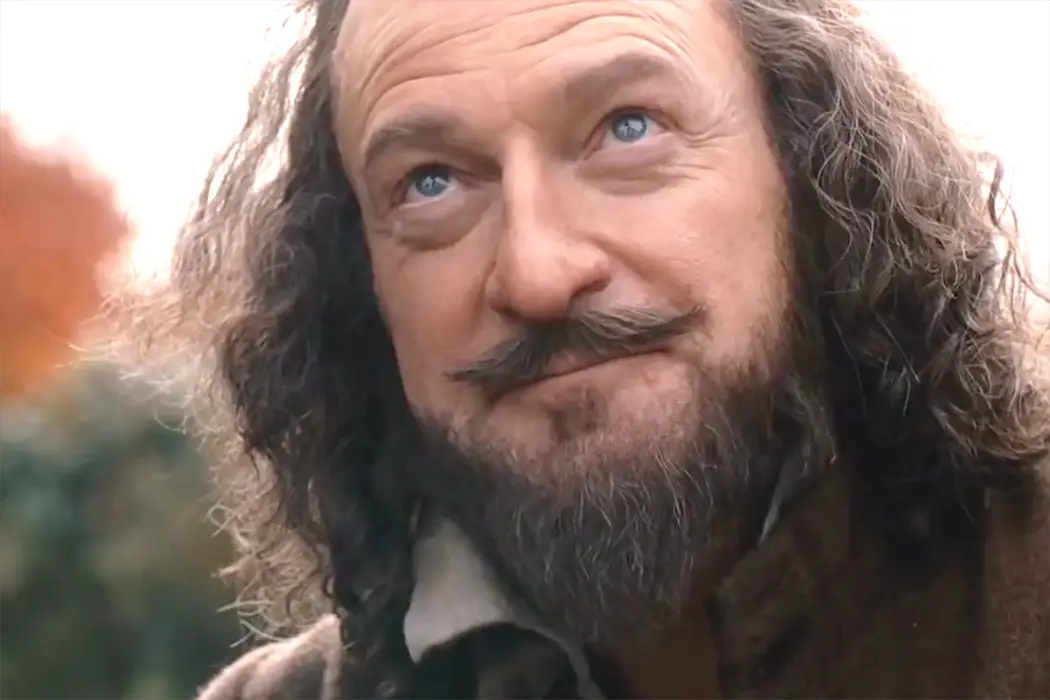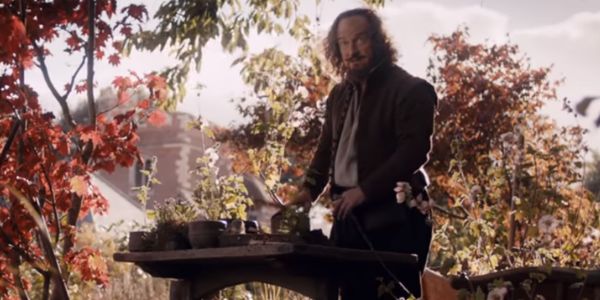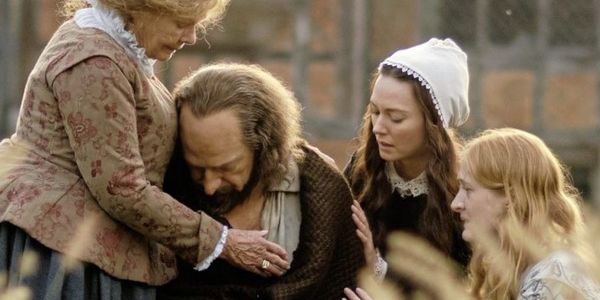ALL IS TRUE: Bardic Passion Project Lacks A Spark

Nathan decided to take a gap year after completing his…
All Is True, but it’s frustratingly dull too. Despite handsome production values and fine performances, Kenneth Branagh‘s latest directorial effort cannot overcome the trappings of a stuffy yet slow period piece. It lacks dramatic urgency or any real motivation, besides its director and writer paying homage to a man they both clearly admire: William Shakespeare. While that doesn’t make for very exciting filmmaking, admittedly, the passion brought to the project may be enough for some audiences to climb on board with this well-intentioned but clearly flawed and underwhelming picture.
After the Globe Theatre burns down in 1613 during a performance of his play Henry VIII, Shakespeare returns to his Stratford residence with his wife Anne Hathaway, where unspoken frustrations infest the family home. A long-term Shakespeare fan, Branagh attempts to frame the more tiresome details of Shakespeare’s otherwise fascinating life, but it is told in this low-key, small-scale manner that tries to breathe an intimacy into the tale. But with that intimacy, unfortunately, comes a dryness; as a piece of filmmaking – particularly one landing in the middle of the award season shuffle no less, at least on home soil in the United Kingdom – All Is True is a rather redundant exercise.
Lethargic filmmaking that lacks energy
Lethargically paced and perhaps too admiring to delve into the elements of the narrative that holds the juiciest potential, All Is True never emerges with a fully formed idea of the film it wants to be. Fragmented and disjointed in its thematic journey, it attempts to examine a dichotomy within Shakespeare’s life: his authorial success has far eclipsed his personal life and stalked by an unsettled tragedy, he feels like a stranger in his own hometown. The Ben Elton-penned screenplay scratches the surface of such an inner-division but never burrows deep enough for it to completely work, unable to quite combine the two in a way that feels totally cohesive or impressive.

Peppered throughout the screenplay is a dialogue that will be recognised by the bard’s enthusiasts; for those not quite so well-versed in his work, it stands out a while off – stammered in its incorporation. Again, it comes down to the film’s unwavering appreciation of its muse, but that acts as its downfall too, bringing about the main dilemma the film faces: who is this film intended for? There’s most certainly an audience for it, evidenced by the busy weekday matinees – but too loose with its accuracy for aficionados and lacking the context for those less familiar with his work, it is stranded in a middle ground that can’t serve either amply.
Handsome and well-acted
Thankfully, Branagh’s interpretation of Shakespeare is terrific and he truly transforms into the role. Alongside the stellar cast, including on-screen wife Judi Dench (as reliably impressive as ever), they tend to the script’s dramatic deficiencies. Infusing intensity into the two-handers and three-handers, with Kathryn Wilder as Judith Shakespeare more than capable in keeping up with her more veteran co-stars, the film operates most effectively during these moments of familial friction. These scenes exploring loss and distance give this interpretation a new life that, while unsustained across the 101 minutes, offers well-needed texture to the piece.

With what can only be described as an extended cameo from Ian McKellen which marks the film’s transition point; the second half is undoubtedly, thankfully stronger. His appearance lends the film some focus, as it begins to consider some of the lesser-known facets of Shakespeare’s life while committing to an engaging exploration of expectations and legacy. Again, “better” doesn’t necessarily equal “great” but it’s a welcomed relief after a painstakingly crawling opening.
Interestingly shot, with some gorgeous colour swirling throughout the frame courtesy of cinematographer Zac Nicholson, this really is an attractive production. The autumnal scenery enhances the mood of the piece, as does Patrick Doyle’s score; although heavy-handed in practice, sometimes overly-prescribed to manipulate the emotion of the scene, it is an efficient composition nevertheless, powerful when used correctly – and, fellow writers, handy when you need some background music!
In Conclusion: All Is True
All Is True fails to really justify itself: it’s a patchwork of ideas that never really coalesces confidently. Despite picking up some momentum in the second half and bringing its themes into focus more sharply, its lack of energy turns it into a plodding exercise that never frees itself from that tedious opening half. Our ensemble gives it their all and the passionate people involved in this project ensure its heart is clearly felt – but pure intentions don’t always make for good filmmaking and that is true for All Is True.
What is your favourite screen interpretation of William Shakespeare’s life?
All Is True is out in UK cinemas. A US release is expected later this year.
Does content like this matter to you?
Become a Member and support film journalism. Unlock access to all of Film Inquiry`s great articles. Join a community of like-minded readers who are passionate about cinema - get access to our private members Network, give back to independent filmmakers, and more.
Nathan decided to take a gap year after completing his A-Levels (Media Studies, English Language & Literature and Drama & Theatre Studies) to gain some journalism and media experience before making the next step. In that time, he has continued to run his blog - PerksOfBeingNath - which is now approaching its second anniversary and crammed in as many cinema visits as humanly possible. Like a parent choosing their favourite child, he refuses to pick a favourite film but admits that it is currently a tight race between Gone Girl and La La Land. Self-admitted novice on cinema of the past and always open to suggestions. http://perksofbeingnath.blogspot.co.uk













